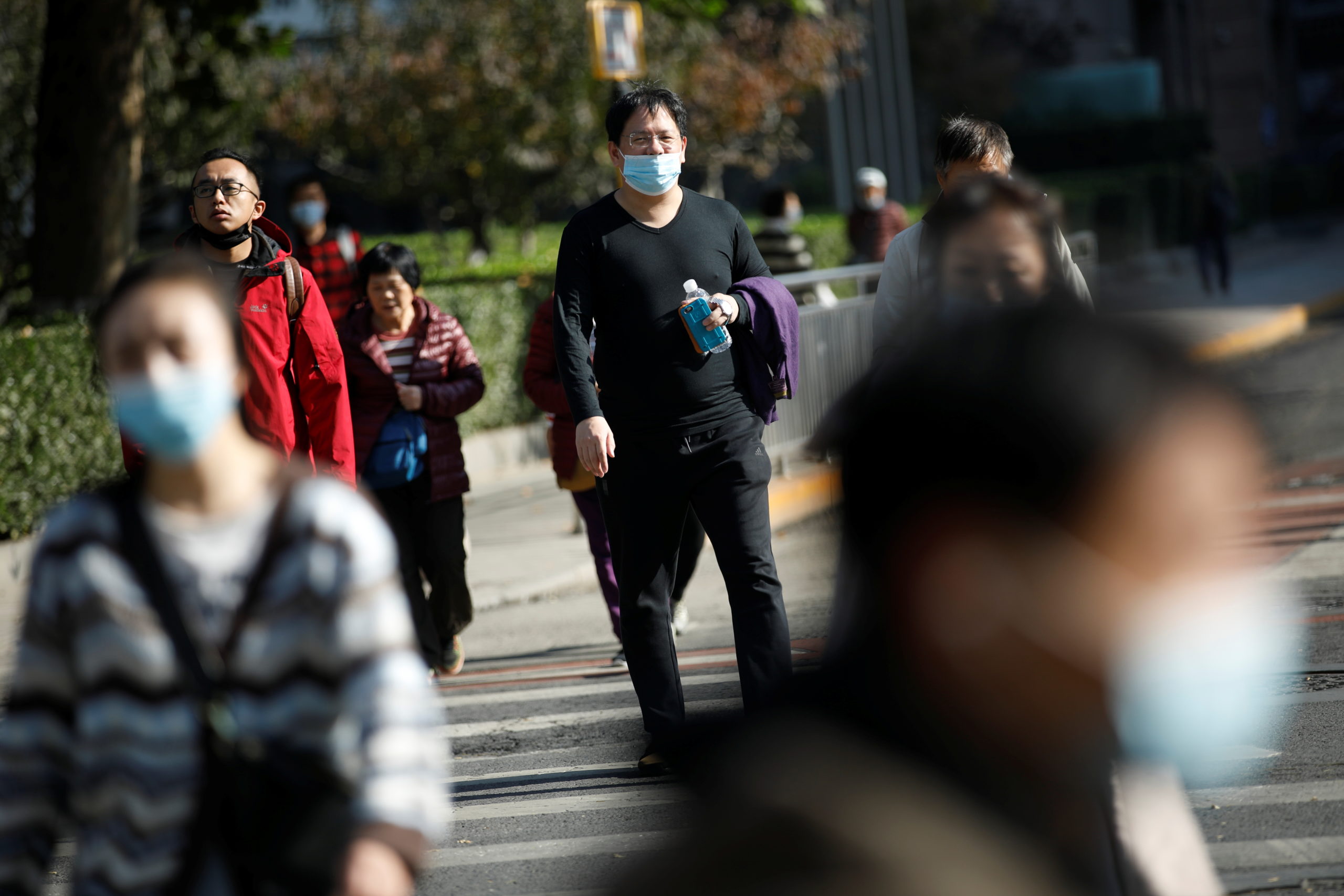
People wearing masks following the coronavirus disease (COVID-19) outbreak walk across a street, in Beijing, China November 12, 2020. REUTERS/Tingshu Wang
BEIJING— China is facing an increased risk of local transmission of the new coronavirus in the winter due to imported cases as the spread of the global pandemic accelerates, a senior official at the country’s health authority said on Thursday.
In winter, there might be sporadic cases in some areas in China and some pocket cluster cases in others, Li Bin, vice minister of the National Health Commission, said at a press conference.
“China’s epidemic prevention and control work cannot be relaxed for a single moment,” Li said.
Countries such as India, Brazil and France are reporting tens of thousands of new infections daily. By contrast, China has largely controlled the spread of the coronavirus since early summer, although clusters of community infections have periodically hit parts of the country.
In the past week, a handful of local cases linked to food imports have emerged in the northern port city of Tianjin, while an airport worker in Shanghai has contracted the virus even though he has had no direct contact with infected patients.
Officials at the news conference noted a rise in imported cases among travelers arriving from abroad.
China has continued to halt issuing visas to some foreign nationals while restricting non-urgent outbound movements by Chinese citizens, Yin Chengji, deputy commissioner of the National Immigration Administration, told reporters.
The country has also taken stronger measures on imported frozen food, having done random checks on more than 870,000 samples, Bi Kexin, an official at the General Administration of Customs, said at the same press conference.
It is demanding certification from suppliers, and market regulators should take tougher measures against untraceable frozen food, said Chen Xu, an official at the State Administration for Market Regulation.
Asked if China would create so-called travel bubbles with countries less affected by the virus, Luo Zhaohui, vice minister of foreign affairs, said now was not the right time.
“For closed-loop travel bubbles we do not deny this possibility, but we think the conditions are not right yet,” said Luo.
Hong Kong and Singapore have agreed to open Asia’s first travel bubble in late November.
Asked if China would receive and help treat patients from other countries, Luo said China could consider sending Chinese experts to those countries to lend their assistance.
He also warned Chinese citizens against outbound travel.
“Our advice is do not go overseas,” Luo said.